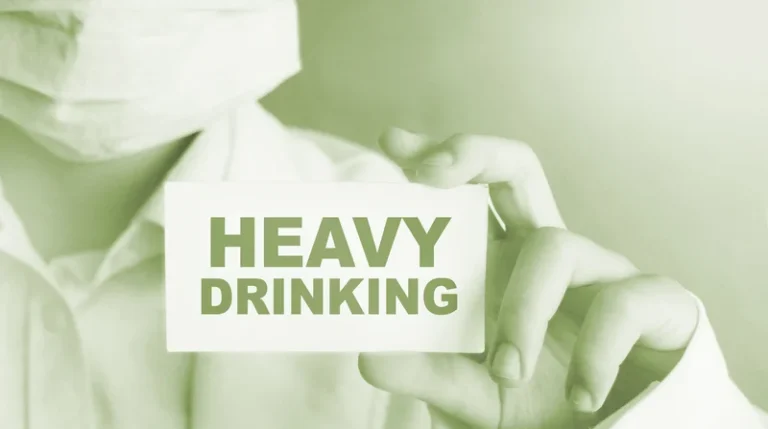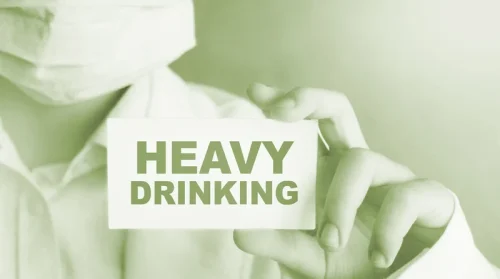
Medical supervision, behavioral health treatment, and mutual-aid groups can help you through alcohol withdrawal and stay stopped. Inpatient rehabilitation programs include both short (28 or 30 days) and long-term (90+ days) programs and offer the most intensive level of treatment. Patients receive 24-hour attention while living within a facility and can benefit from their peers and the support staff.5 During this time, they’ll also attend many group therapy and individual counseling sessions. Since alcohol affects various aspects of a person’s life, treatment plans are designed to also work on a person’s psychological and physical well-being. Not everyone with an alcohol use disorder develops a physical dependence to alcohol, but people may exhibit other physicalsymptoms.
Physical symptoms of alcohol misuse

When your alcohol use, including being sick from drinking, often prevents you from keeping up with responsibilities at home, work, or school, it’s a problem. Your brain adapts to alcohol over time and can become less sensitive to its effects. Immune systemDrinking too much can weaken your immune system, making your body a much easier target for disease. Chronic drinkers are more liable to contract diseases like pneumonia and tuberculosis than moderate drinkers.
Support Groups and Rehabilitation Programs
- If someone close to you is displaying signs of alcohol dependence, it can be difficult to know what to do.
- Moderate to heavy drinkers can also benefit from medical supervision in the acute withdrawal stage.
- Too much alcohol affects your speech, muscle coordination and vital centers of your brain.
- Your doctor or healthcare provider can diagnose alcohol use disorder.
Too much alcohol can be toxic to liver cells, causing dehydration and permanent scarring—which ultimately affects the blood flow. With excessive alcohol consumption, this important organ can’t metabolize Vitamin D, which could develop into a deficiency. Some common signs and symptoms of cirrhosis include fatigue, itchy skin, weight loss, nausea, yellow eyes and skin, abdominal pain and swelling or bruising. Because assessing for potentially problematic patterns of drinking can be difficult, it may be helpful to take a closer look. What some people might dismiss as regular social drinking may actually be approaching the compulsive patterns of drinking that underlie alcohol addictions. Below are some common alcohol abuse signs that may indicate whether a person is struggling with alcoholism, or an alcohol use disorder.

Behavioral symptoms of excessive drinking

A person who is physically dependenton alcohol may also experience cravings — an intense need or desire to drink. Someone with an alcohol addiction who has remained sober for months or years may find themselves drinking again. They may binge drink once or drink for a period of time before getting sober again.
- Although the exact cause of alcohol use disorder is unknown, there are certain factors that may increase your risk for developing this disease.
- Health professionals sometimes prescribe medications to reduce the symptoms of withdrawal.
- The condition is likely the result of a combination of genetic, social, psychological, and environmental factors.
- The most destructive form of alcoholism is chronic alcoholism, an emotionally, socially and physically devastating disease.
- That strong need or urge can be triggered by people, places, things, or times of day that remind you of drinking.
Clyde was overcome with emotion when he saw his new look for the first time
Alcoholism can be difficult to detect from the outside, particularly early in the course of the disease. But as it progresses,the disease has an array of effects on the body, and a number of physical signs may become apparent. Many individuals with alcoholism are in denial or unaware that they have a problem. Others may realize something is wrongbut go to great lengths to hide their problem out of fear or shame. Mutual-support groups like Alcoholics Anonymous (AA) and inpatient rehabilitation are common treatments https://ecosoberhouse.com/ for alcohol problems.

Listen to relatives, friends or co-workers when they ask you to examine your drinking habits or to seek help. Consider talking with someone who has had a problem with drinking but has stopped. Alcohol use disorder can include periods of being drunk (alcohol intoxication) and symptoms of withdrawal. „People in 12-step programmes might say you’re irritable, restless and discontent,“ the 41-year-old said. „I had many people in my family who quit drinking for many, many years, but never got help. Keep reading to learn more about alcohol intoxication, including its causes, symptoms, and treatments.
- People who are daily or heavy drinkers may need medical support to quit.
- In the emergency room, a doctor will check their BAC and look for other signs of alcohol poisoning, such as a slow heart rate and low blood sugar and electrolyte levels.
- Certain emotions or physical sensations can also trigger a craving.
- In some people, the initial reaction may feel like an increase in energy.
- Mutual-support groups provide peer support for stopping or reducing drinking.
- If you are thinking about quitting drinking, talk to your healthcare provider.
- Support groups can be a highly effective form of help at this stage.
- Relapsing doesn’t mean that treatment has failed, though — it takes time to change behavior.
- Immune systemDrinking too much can weaken your immune system, making your body a much easier target for disease.
Find support for yourself and other family members in a rehab family program. Go to an Al-Anon or Alateen meeting or set up an appointment with a mental health professional. At the end of the day, the person with addiction has to be willing to accept help. In outpatient programs, those working toward recovery receive addiction treatment while living at home or outside of a facility. Because alcoholism rewires the brain and affects a person’s mood, thinking and behaviors, it’s classified as a mental illness.Thus, many of the hallmark signs of alcoholism involve changes in behavior. The brain experiences the effects of alcohol right away, resulting in changes in mood, behavior, and judgment.
While only a healthcare provider can diagnose an alcohol use disorder, there are several physical and behavioral signs that may indicate an individual struggles with their alcohol use. Alcohol use disorder is considered a progressive disease, meaning that the effects of drinking alcohol become increasingly more severe over time. Taking an alcoholism screening quiz can help you determine whether you have the symptoms of an alcohol use disorder. Genetic, psychological, social and environmental factors can impact how drinking alcohol affects your body and behavior.

How to Help a High-Functioning Alcoholic
It can cause changes to the brain and neurochemistry, so a person with an alcohol addiction may not be able to control their actions. If you don’t have any symptoms, then staying within the limits provided in the 2020–2025 Dietary Guidelines for Americans signs of alcoholism could reduce your chances of having problems in the future. If you do have any symptoms, then alcohol may already be a cause for concern. A health care professional can look at the number, pattern, and severity of symptoms to see whether AUD is present and help you decide the best course of action. You may need to seek treatment at an inpatient facility if your addiction to alcohol is severe. These facilities will provide you with 24-hour care as you withdraw from alcohol and recover from your addiction.




